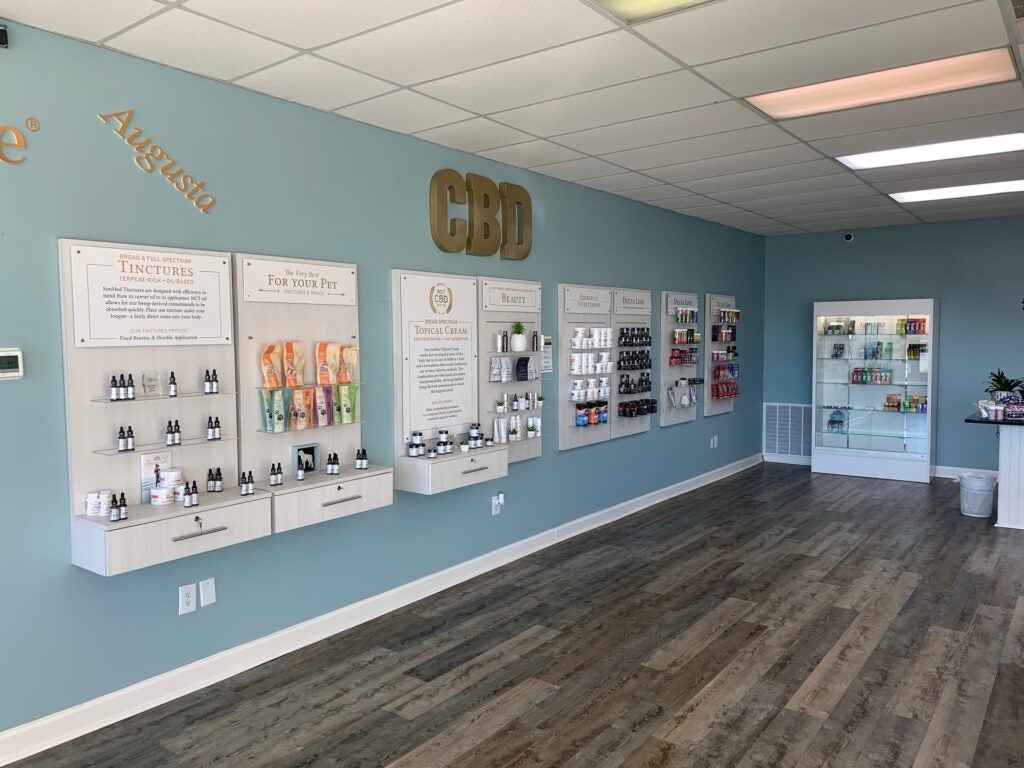Those of the “Hippie” generation and Gen X likely only dreamed of a day when they could celebrate 420 by grabbing a pack of THC gummies at a retail outlet around the corner instead of buying a dime bag from some guy in a parking lot.
However, that day has come, and now the state of Georgia is attempting to regulate the sale of CBD products that contain THC, which is the active ingredient in the Delta-8 and Delta-9 CBD products that give the recreational user a high.
Earlier this year, Gov. Brian Kemp signed the Georgia Hemp Farming Act, which went into effect on Oct. 1 and allows the Department of Agriculture to regulate the amount of THC in a product or outright ban certain forms of the product from sale altogether.
While the sale of “marijuana” remains illegal in Georgia, cannabis advocates found a clever loophole in the law. On paper, the item being banned is simply referred to as “marijuana,” a strain of the hemp plant. The law, however, did not ban the sale of its active ingredient, which is THC, nor did the law specifically ban the “bud” or “flower” of the plant, the ban only referred to the plant itself.
MORE: Florida-based medical cannabis company opening dispensary in Evans
This parsing of legalese gave manufacturers the legal ability to infuse all kinds of products such as candies, gummies, edibles and drinks with THC.
The first move of the DOA was to ban the sale of the smokable flowers and retailers had until the Oct. 1 deadline to sell off or dispose of any of the flower products.
Dr. Rob Milhouse, owner of the Augusta Hemp Company and president of the Georgia Cannabis Project, said that hemp retailers were not made aware of the discussions happening in the Senate. He believes that the medical marijuana lobby helped pushed the regulations through to protect its own interests and squeeze out emerging small businesses.
“No, we were not aware these discussions were being held and usually there is a budget set aside for promotion of anything the governor signs, but this just kind of happened overnight with no fanfare at all,” Milhouse said.
However, Dylan Lyons, owner of three My CBD Store locations in the CSRA, said he knew that, at some point, regulations would be coming, and he is unwilling to blame them on any one lobbying group or a clandestine campaign.
According to Lyons, some of the regulations are designed to protect the public and keep what is still a controlled substance out of the reach of minors.
“We have had a sign stating that no one under 21 is allowed in the store since we opened, and that really is just common sense,” Lyons said.
Lyons also points out that with no restrictions at all, convenience stores have been able to stock products that have been imported from overseas and have no list of active ingredients, meaning consumers have no idea what other substances besides THC might be present in the product.

“All of the products we carry have a QR code that will tell you exactly what is in the product and give details all the way down to when that particular batch was produced,” Lyons said.
However, Lyons agrees with Milhouse that regulating the amount of THC present in a single gummy or soft drink is harmful to the consumer because they must buy more of the product to achieve the desired effect.
Lyons also points out that the overwhelming majority of the products he sells do not contain any noticeable amount of THC, as it is the natural CBD found in hemp that helps control inflammation, arthritis and other disorders.
Both men say that they will be watching closely on further moves and possible restrictions by the DOA in the future.
“What they have done is open the door, so we don’t really know what is coming next, but we are certainly watching,” Milhouse said.
Scott Hudson is the Senior Investigative Reporter and Editorial Page Editor for The Augusta Press. Reach him at scott@theaugustapress.com











